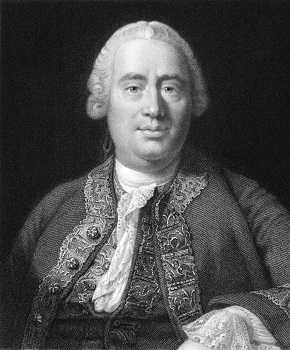Liberty Matters
Some More Mere-Liberty Moments in Hume’s History, Part 2
 Volume V
Volume VHere I leave off 114, 560, which were treated previously.
By the way, at 18-19 is a nice passage pertinent to Nick's contention about liberty as an especially British unfolding (featuring an interesting occurrence of "liberal").
At 20-21 we find free-market remarks, including the endeavor "to free trade from those shackles," "patents for monopolies … extremely fettered every species of domestic industry," the Commons attempted "to give liberty to the trading part of the nation," and an attempt "to free the nation from the burthen of purveyance."
In reflecting on James I, Hume remarks on developments since 1625:
By the changes, which have since been introduced, the liberty and independence of individuals has been rendered much more full, intire, and secure; that of the public more uncertain and precarious. [128]
Notice that the liberty of individuals is said to have become not only more "secure" (predictable, certain, etc.) but more "full" and "intire."
At 160 Hume says of a key group of parliamentarians, including Thomas Wentworth, Robert Philips, Edward Coke, and John Selden: "Animated with a warm regard to liberty, these generous patriots…." Then at 189-91 Hume quotes Philips and Wentworth at length, and mere-liberty is conspicuous in their words.
At 194-95 Hume channels the "partizans of the court": "it were surely much better for human society to be deprived of liberty than to be destitute of government."
I'm really not sure what Hume means by "civil liberty," so the following is a "maybe" (and others like it could have been added). Sketching three types of puritan, Hume says that one were "the political puritans, who maintained the highest principles of civil liberty" (212).
At 556, Note [J], Hume says: "In the ancient feudal constitution, of which the English partook with other European nations, there was a mixture, not of authority and liberty, which we have since enjoyed in this island, and which now subsist uniformly together; but of authority and anarchy…." The connotation here is perhaps not so clearly mere-liberty. (See also 533.) But the passage relates to what I wrote about imperium in my initial essay. Other passage related to the imperium theme are found at I: 254; II: 525; III: 49, 51, 73-77, 80; IV: 384, 406, 414.
Volume VI
Speaking again of commerce, the free-market Hume says "the monopoly was gradually invaded, and commerce encreased by the encrease of liberty" (148).
Hume writes of "the rigours exercised against conventicles," of the "enormous outrage" of quartering mercenaries to enforce it, and of how, furthermore, "chicanery was joined to tyranny" (328-29). "If … a protestant church … [that] approaches towards unlimited authority were so tyrannical, how dismal its final establishment; when all dread of opposition shall at last be removed by mercenary armies, and all sense of shame by long and inveterate habit?" (331).
Hume explains that the Jesuits believed that they would be able to convert the English population if they were to obtain "toleration" and then "entire liberty" (340).
Discussing habeas corpus, Hume says that it "seems necessary for the protection of liberty." He also comments: "It must, however, be confessed, that there is some difficulty to reconcile with such extreme liberty the full security and the regular police of a state, especially the police of great cities" (367).
Again, my command of the History is minimal, and there surely are other passages more significant than some of the foregoing. I compiled this without making use of the search function (except to pull already-identified passages). Searching on "liberty," "free," etc. would turn up much more.
And again there are oodles of other passages in which, I think, a mere-liberty connotation is eminently present, but in which the other related meanings also make good sense.
And this document treats only the History; the presence of mere-liberty in Hume's other works is more familiar, and a few moments of it have been highlighted in foregoing posts by Nick and me.
Copyright and Fair Use Statement
“Liberty Matters” is the copyright of Liberty Fund, Inc. This material is put on line to further the educational goals of Liberty Fund, Inc. These essays and responses may be quoted and otherwise used under “fair use” provisions for educational and academic purposes. To reprint these essays in course booklets requires the prior permission of Liberty Fund, Inc. Please contact oll@libertyfund.org if you have any questions.